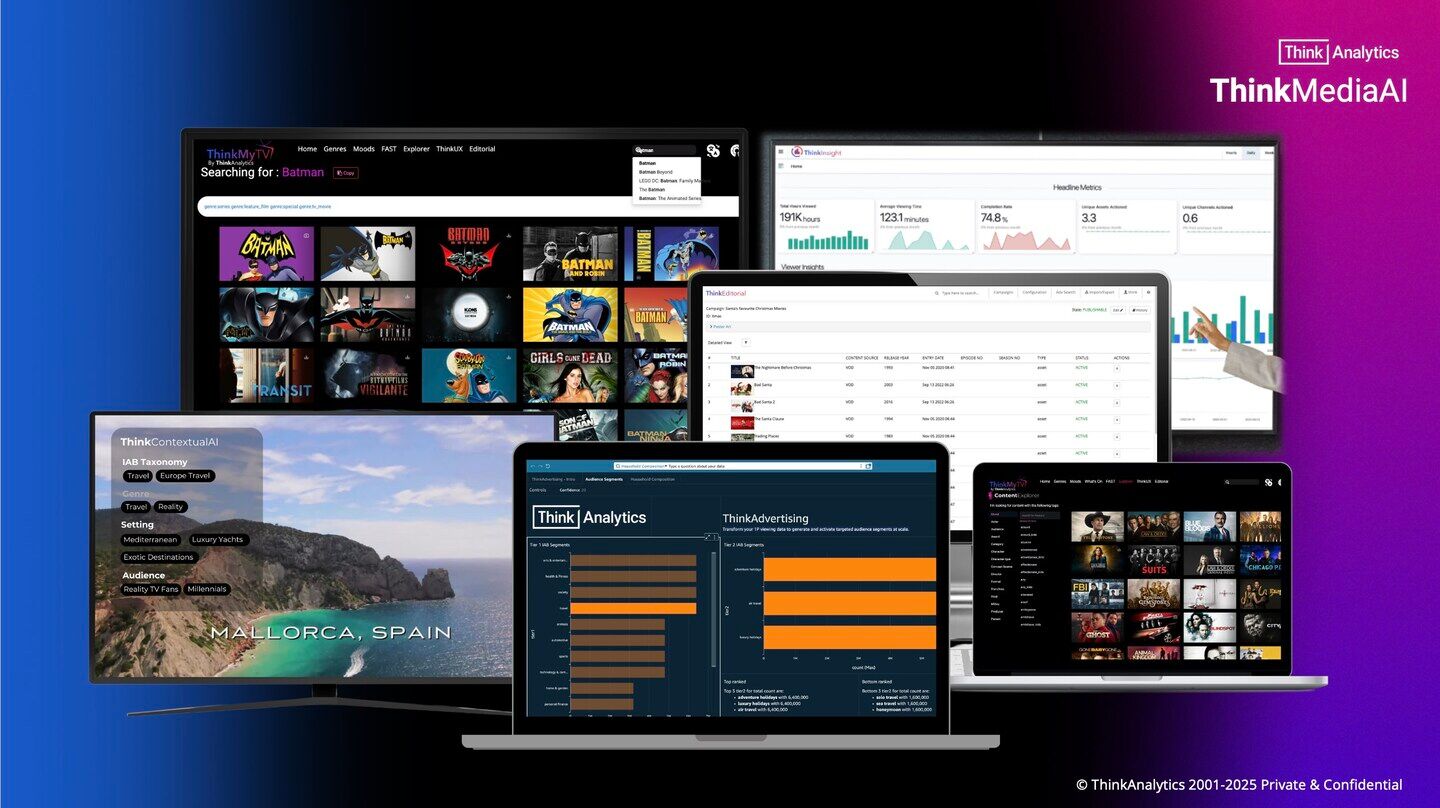Video content discovery and personalisation specialist ThinkAnalytics has launched ThinkMediaAI, described as a unified AI platform that encompasses content monetisation, contextual advertising, content curation and content bundling for video service providers.
ThinkAnalytics says ThinkMediaAI represents the next generation of its portfolio as it continues to expand with offerings across advertising, free ad-supported streaming TV (FAST) and connected TV.

Eddie Young, chairman and CEO of ThinkAnalytics, said: “ThinkMediaAI is an investment that drives subscriber satisfaction and growth, reduces vendor complexity, drives operational efficiencies, and creates new monetisation opportunities through innovative applications of AI trained on massive datasets.”
ThinkMediaAI is aimed at media companies looking to maximise content value, enhance audience targeting, and drive viewer engagement.
Peter Docherty, CTO and founder at ThinkAnalytics, added: “We know that content is one of the most valuable assets media companies own but only with the right AI tools can they maximise that value. With ThinkMediaAI, we’ve built a platform that understands content, enhances monetisation opportunities, and optimises workflows, all powered by state-of-the-art NLP, AI, and generative AI technologies.”
You are not signed in
Only registered users can comment on this article.

WBD mails definitive proxy statement to finalise Netflix merger
Warner Bros. Discovery (WBD) will hold a special meeting of shareholders to vote on the merger with Netflix on March 20, 2026. In the meantime, WBD has begun mailing the definitive proxy statement to shareholders for the meeting.

Sky's talks to acquire ITV slow down
Talks by Sky to acquire ITV’s broadcast channels and streaming platform have slowed in recent weeks, according to a report by Reuters.

Bytedance pledges to rein in Seedance AI tool
Chinese technology giant ByteDance has pledged to curb its controversial artificial intelligence (AI) video-making tool Seedance, following complaints from major studios and streamers.

Digital switch-off prospect nullifies Arqiva’s value
Arqiva’s main shareholder has admitted that its holding of the transmission company might be worth nothing.

Warner Bros Discovery mulls re-opening sales talks with Paramount
Warner Bros Discovery is considering reopening sale talks with Paramount Skydance Corp, according to a Bloomberg report.




